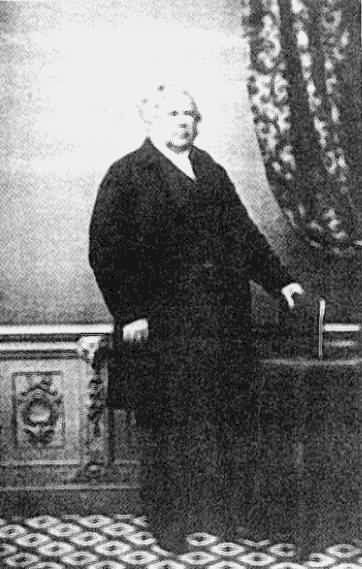


James Booth FRS as the Inventor of the Examinatiuon System
The critical importance of the examination system, and the availability of recognised qualifications, is increasingly being recognised. This has prompted a re-evaluation of the life of James Booth, hitherto a relatively unsung minor mathematician, who was a colleague of McCullagh in Trinity College in the 1830s.

James Booth, TCD
In this capacity he was familiar with the TCD examination system; he attempted the Fellowship examination, along with Salmon and other notables, but failed. His mathematical resarches produced a system of tangential co-ordinates, which would have gained him fame had he not been pre-empted by Plucker in Halle, so 'Booth's co-ordinates' never got off the ground.
Booths road to Fellowship of the Royal Society was not therefore riooted in his TCD experience; he went to England in 1840, becoming the Principal of Bristol College, which was an early attempt to generalise the London experience of building a 'civic university'.
Bristol however was killed off by clerical opposition, but Booth surfaced again in Liverpool, where he became vice-Principal of the 'Liverpool Collegiate Institution', the forerunner of the Redbrick Universies.. In this context he devised a good practical curriculum, lecturing himself on 'steam' using Lardner's text. There is a direct link here with the Dublin Mechanics Institute's pioneering of artisan education.
He had taken holy orders in 1842, and by 1849 he was rector of St Anne's in Wandsworth, where his sermons were, basically, popular science lectures. He had established a trade school, at which he taught JC Buckmaster, who later becane influential in the Department of Science and Art. The Society of Arts was the industrial lobby in favour of technical competence, and Booth also became influential in this context.
The stage was now set for Booth to become the inventor of the modern examination system, which he did via the Society of Arts, which evolved into the examinations of the City and Guilds in 1879. The system was copied, shortly after it had been inaugurated, by the Universities, leading eventually to the Oxford and Cambridge School Certificates which helped to unify the educational system after the 1902 Education Act. The arguments are developed in extensive footnotes; the author defends Booth from association with the infamous 'payment by results' system which was imposed subsequently by the government bureaucracy.
Some navigational notes: In most browsers, if you click on the 'Back' button, it will bring to to the point of departure in the document from which you came. Additional navigation options of local relevance are given at the foot of each page, thus:
[Top of Page] [Prometheus Contents ] [Tyndall Publications ]